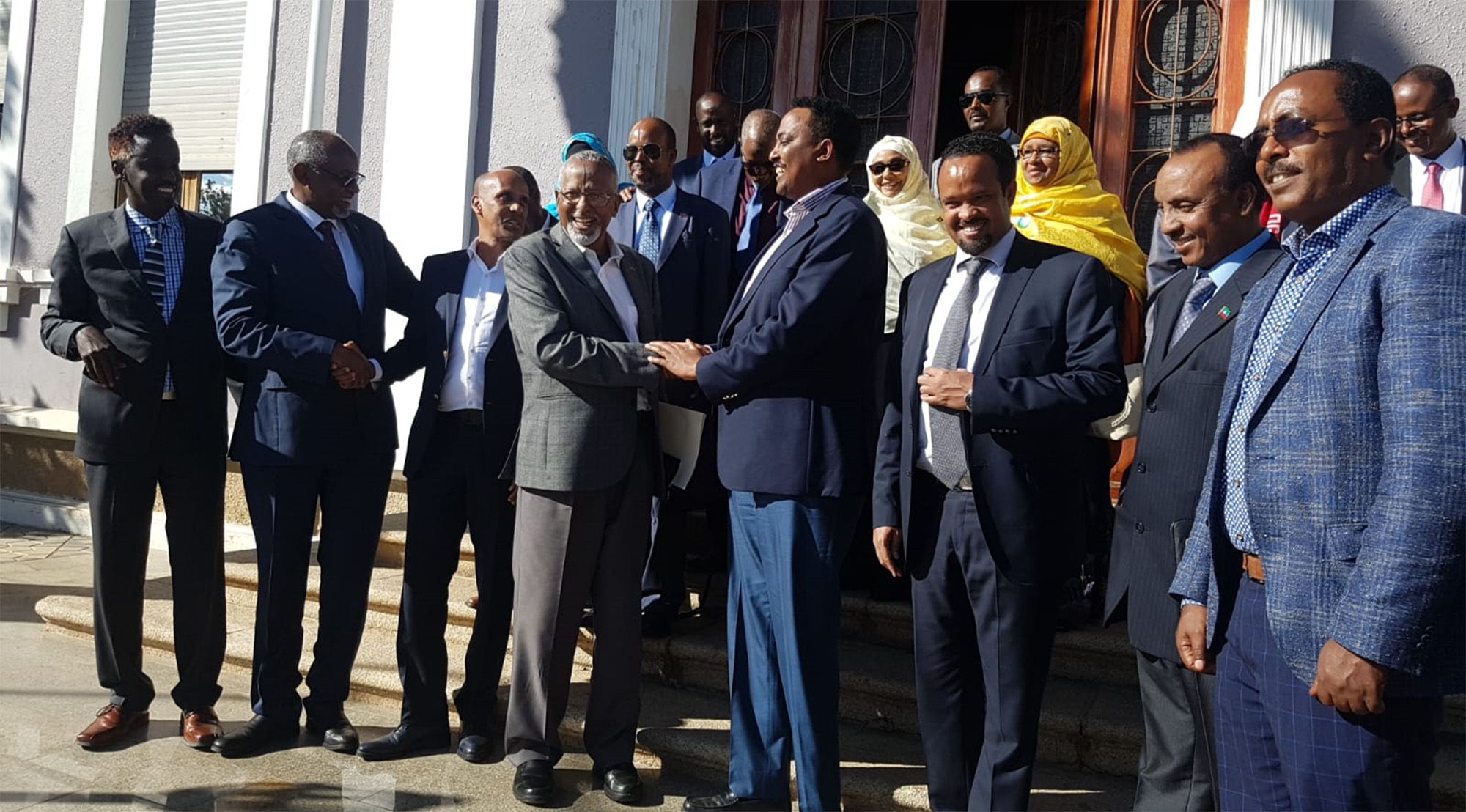In October 2018, the Ogaden National Liberation Front (ONLF) and the Government of Ethiopia signed an historic peace deal, ending nearly a quarter of a century of armed conflict in the Somali Regional State of Ethiopia. Conciliation Resources was there, as we have been for the past seven years of negotiations, helping these two parties to reach a peace deal by providing technical support to the negotiations, as well as feeding the views of wider society into the peace process. Now, we are working with the Somali Regional State government and the ONLF to implement the peace deal and to support the transition to peace in the region.
Since the signing of the peace deal, the ONLF leaders have returned to the region after more than 20 years of exile and have been focusing on the group’s transition from an armed group to a political party. The group has demobilised its fighters, adopted a peaceful emblem and elected new leadership headed by the former chief peace negotiator. The group has also taken inspiration from learning visits organised by Conciliation Resources to Northern Ireland and Mindanao in the Philippines in the design and implementation of their transition to peace strategies. This includes restructuring the organisation, preparing their leaders and cadres for the transition and creating a political roadmap. Their official registration as a political party has now been confirmed, and they will run in elections which were planned for August 2020, but have been postponed due to the COVID19 pandemic.
Conducting credible and peaceful elections is the biggest litmus test for the peace deal. This would pave the way for a new government with the necessary legitimacy and confidence to embark on major institutional and governance reforms needed in the region. An elected government would restore the confidence of the local population in their state institutions, which could help the government put in place measures to deal with the historical legacies of conflict and marginalisation. However, the new government would also have to manage the expectations and demands of the people as it requires time, resources and goodwill to deliver on its mandate.
In July, representatives from the Somali Regional State government and the ONLF, with the support of Conciliation Resources, held a confidence building retreat to take stock of progress in the implementation of the peace deal and agree mechanisms for better collaboration. Shortly after, regional President Mustafa Omer officially launched a new Joint Committee of the Somali Regional Government and the ONLF. The committee, which was one of the key commitments in the peace agreement, provides an official avenue for the two sides to discuss fundamental issues concerning the root causes of the conflict, and to promote long term peace and stability.
We’re now working with the federal reconciliation commission, Somali regional government and victim’s groups to connect federal and regional reconciliation initiatives, help document the needs and priorities of victims and ensure these are fed into a wider reconciliation process in Ethiopia. This will help meet the urgent need to ensure that civilian victims and survivors of the conflict, as well as ex-combatants, see the benefits of the peace deal, in part to avoid a potential return to armed conflict.


